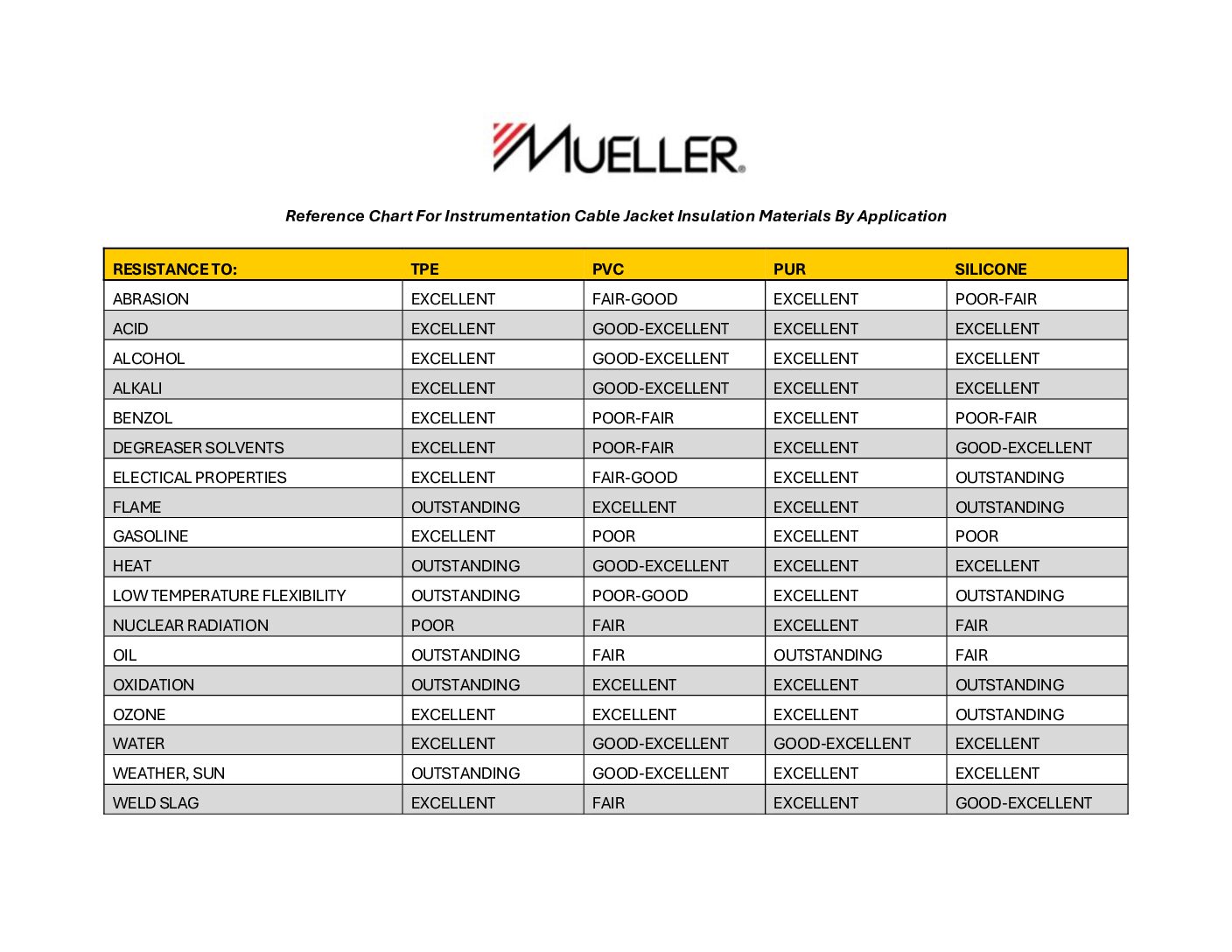So, what are the differences between PVC vs PUR vs TPE instrumentation cable jacket insulations? You’ve probably heard about all three. Each has different strengths and can offer unique protection in guarding cables against environmental factors that cause damage, wear and tear which, in turn, adds longevity to your instrumentation cables and can eliminate a lot of unplanned machine downtime.
So how do you choose the best instrumentation cable? That depends on the environment of your production floor. Does what you manufacture involve high temperatures or flame? What about extreme cold? Are chemicals used to process your product? Or does your machinery require frequent washdowns during or after shifts?
Read this guide to cables to discover more about PVC vs PUR vs TPE and which is the best cable jacket insulation for your specific application.
PVC
Polyvinyl chloride is a great choice for general purpose use which allows us to give a great price point. Because of its high moisture resistance, PVC is great for use in wet or humid conditions.
PUR
Polyurethane offers good resistance against abrasion, oil and ozone. PUR is halogen free, meaning it does not contain chlorine, iodine, flourine, bromine or astatine.
TPE*
Thermoplastic elastomer is flexible, recyclable and has the ability to withstand chemicals and endure harsh temperatures. TPE is resistant to aging in sunlight, UV and ozone. It also has a high flex rating, typically 10 million.
* This insulation is manufactured and applied to all 18 AWG instrumentation cables in house at Mueller Electric which gives a lower price point than PUR!
Here is a handy chart below that summarizes the performance of PVC, PUR and TPE when using different applications.

Feel free to browse through our extensive collection of instrumentation cables in our instrumentation catalog here. Have more questions about what Mueller Electric has to offer? Instrumentation cables are our specialty! Contact Mueller Electric at 800.955.2629 and speak with one of our trained experts to further identify which insulation is best for you!
